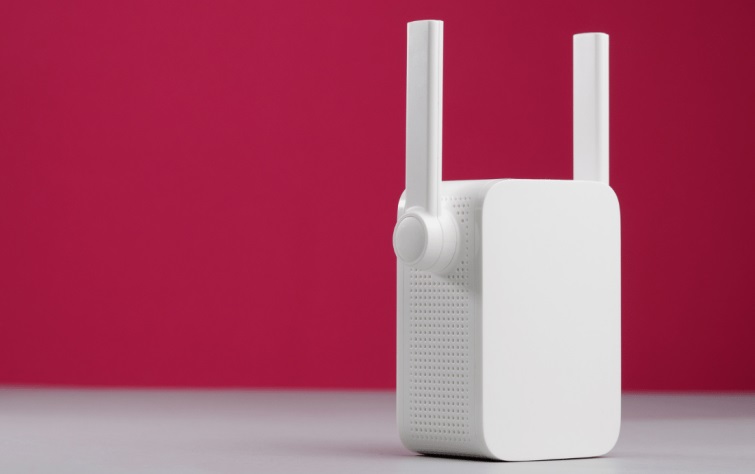WiFi boosters, also known as WiFi extenders or WiFi repeaters, are devices designed to enhance and extend the coverage area of your existing wireless network. While they can be helpful in certain situations, it’s essential to understand how they work and their impact on internet speed.
How WiFi Boosters Work
A WiFi booster receives the signal from your primary router and retransmits it, creating a secondary network. This secondary network can provide better coverage in areas where the original signal is weak or non-existent. However, it’s important to note that the extended network is typically slower than the primary network due to the way the signal is repeated.
Benefits of Using a WiFi Booster
- Increased Coverage Area: WiFi boosters can extend the reach of your wireless network, allowing you to access the internet in areas that were previously dead zones.
- Improved Stability: In areas with weak signal strength, a WiFi booster can provide a more stable and reliable connection.
- Cost-Effective Solution: WiFi boosters are generally less expensive than upgrading to a more powerful router or installing additional access points.
Limitations of WiFi Boosters
- Reduced Speed: The extended network created by a WiFi booster typically operates at a lower speed than the primary network due to the signal processing overhead.
- Interference: WiFi boosters can be susceptible to interference from other wireless devices, walls, and physical obstructions, which can further degrade performance.
- Bandwidth Limitations: The overall internet speed is still limited by the bandwidth provided by your internet service provider (ISP).
Factors Affecting WiFi Booster Performance
- Placement: Proper placement of the WiFi booster is crucial for optimal performance. It should be positioned in a location that receives a strong signal from the primary router and has minimal obstructions.
- Number of Devices: The more devices connected to the extended network, the greater the strain on the WiFi booster, potentially leading to slower speeds.
- Distance from the Primary Router: The farther the WiFi booster is from the primary router, the weaker the signal it receives, which can impact the speed of the extended network.
- WiFi Standard: Older WiFi standards (e.g., 802.11g) generally offer slower speeds compared to newer standards (e.g., 802.11ac, 802.11ax).
Tips for Optimizing WiFi Booster Performance
- Position the Booster Strategically: Place the WiFi booster in a central location, preferably halfway between the primary router and the area with poor coverage.
- Update Firmware: Keep the firmware of your WiFi booster and router up-to-date to ensure optimal performance and security.
- Minimize Interference: Avoid placing the WiFi booster near other electronic devices or appliances that may cause interference.
- Use Wired Connections: For devices that require high-speed internet, consider using a wired Ethernet connection instead of relying on the extended wireless network.
- Upgrade to a Newer WiFi Standard: If you have an older WiFi booster or router, consider upgrading to a device that supports the latest WiFi standards for improved speeds.
Alternatives to WiFi Boosters
If WiFi boosters do not meet your needs or if you require faster internet speeds, consider the following alternatives:
- Upgrade Your Router: Investing in a more powerful and modern router can provide better coverage and faster speeds throughout your home or office.
- Install a Mesh WiFi System: Mesh WiFi systems use multiple interconnected nodes to create a seamless and robust wireless network, eliminating dead zones and providing consistent speeds.
- Use Powerline Adapters: Powerline adapters leverage your existing electrical wiring to create a wired network connection, which can be faster and more reliable than a wireless connection.
- Explore Wired Ethernet Solutions: Running Ethernet cables to strategic locations can provide a stable and high-speed wired connection, ideal for bandwidth-intensive applications.
Key Takeaways
- WiFi boosters can extend the coverage area of your wireless network but may result in reduced speed due to signal processing overhead.
- Proper placement, minimizing interference, and using the latest WiFi standards can optimize WiFi booster performance.
- Alternatives like upgrading your router, using a mesh WiFi system, or exploring wired solutions may provide better speed and reliability than a WiFi booster, depending on your specific needs.
Conclusion
While WiFi boosters can be a cost-effective solution to improve wireless coverage in areas with poor signal strength, they may not necessarily increase internet speed. The extended network created by a WiFi booster typically operates at a slower speed than the primary network due to the signal processing overhead involved in repeating the signal.
However, by following best practices such as strategic placement, minimizing interference, and using the latest WiFi standards, you can optimize the performance of your WiFi booster and potentially mitigate some of the speed limitations.
Ultimately, the decision to use a WiFi booster should be based on your specific needs and network requirements. If you require faster internet speeds or have a large area to cover, it may be worthwhile to consider alternatives such as upgrading your router, installing a mesh WiFi system, or exploring wired solutions like Powerline adapters or Ethernet cabling.
FAQs
- Do all WiFi boosters slow down internet speed?
No, not all WiFi boosters necessarily slow down internet speed. However, the extended network created by a WiFi booster typically operates at a lower speed than the primary network due to the signal processing overhead involved in repeating the signal.
- Can a WiFi booster improve internet speed in areas with a strong signal?
In areas with an already strong signal from your primary router, a WiFi booster is unlikely to improve internet speed. WiFi boosters are primarily designed to extend the coverage area of your wireless network, not to increase internet speed.
- How far can a WiFi booster extend the wireless coverage?
The effective range of a WiFi booster can vary depending on factors such as the strength of the primary router’s signal, the environment (walls, obstructions, interference), and the WiFi standard used. Generally, WiFi boosters can extend the coverage by 30 to 100 feet, but this can vary significantly based on the specific conditions.
- Will a WiFi booster work with any router?
Most WiFi boosters are compatible with a wide range of routers and wireless networks, regardless of the manufacturer or internet service provider (ISP). However, it’s always best to check the compatibility specifications of the WiFi booster before purchasing.
- Can multiple WiFi boosters be used together?
Yes, it is possible to use multiple WiFi boosters in a single network setup to extend the coverage area further. However, each additional booster will introduce more signal processing overhead, potentially resulting in slower speeds on the extended networks.
- Do WiFi boosters work with both 2.4GHz and 5GHz networks?
Many modern WiFi boosters support both the 2.4GHz and 5GHz frequency bands, allowing you to extend the coverage of both networks. However, some older or more budget-friendly models may only support the 2.4GHz band.
- Can a WiFi booster improve internet speed if I have a slow internet plan?
No, a WiFi booster cannot improve internet speed beyond the maximum bandwidth provided by your internet service plan. The overall internet speed is still limited by the bandwidth supplied by your internet service provider (ISP).
- Do WiFi boosters require any special setup or configuration?
While WiFi boosters are generally plug-and-play devices, some configuration may be required to optimize performance and ensure proper connectivity with your existing wireless network. Refer to the manufacturer’s instructions for setup guidance.
- Can a WiFi booster cause interference with other wireless devices?
Yes, WiFi boosters can potentially cause interference with other wireless devices operating on the same frequency bands, such as cordless phones, baby monitors, or neighboring WiFi networks. Proper placement and channel selection can help mitigate interference issues.
- Are WiFi boosters secure?
Most modern WiFi boosters come with built-in security features like encryption and password protection. However, it’s important to follow best practices, such as using strong passwords and keeping the firmware up-to-date, to ensure the security of your wireless network.
- Can a WiFi booster be used with a mesh WiFi system?
While it is technically possible to use a WiFi booster with a mesh WiFi system, it is generally not recommended as mesh systems are designed to provide seamless and consistent coverage without the need for additional boosters or extenders.
- How do I know if I need a WiFi booster or a new router?
If you’re experiencing poor wireless coverage in specific areas of your home or office, a WiFi booster may be a suitable solution. However, if you’re experiencing slow internet speeds throughout your entire network, upgrading to a more powerful router or a mesh WiFi system may be a better option.
- Can a WiFi booster improve internet speed for gaming or streaming?
While a WiFi booster can potentially improve the stability and reliability of your wireless connection in areas with poor signal strength, it may not necessarily increase internet speed significantly for bandwidth-intensive activities like gaming or streaming. In such cases, exploring wired solutions or upgrading your internet plan may be more effective.
- How do I troubleshoot a WiFi booster that isn’t working properly?
If your WiFi booster isn’t working as expected, try resetting it, checking for firmware updates, ensuring proper placement, and minimizing interference from other devices. If the issue persists, consult the manufacturer’s support resources or consider replacing the booster.
- Can a WiFi booster work with both WiFi and wired connections?
Yes, WiFi boosters can work in conjunction with wired (Ethernet) connections. While the booster extends the wireless network, you can still use wired connections for devices that require faster or more stable internet speeds.
- Do WiFi boosters consume a lot of power?
WiFi boosters generally consume a moderate amount of power, similar to a typical wireless router. However, some models may have power-saving features or different power consumption levels based on their specifications.
- Can a WiFi booster improve internet speed in a large office or commercial space?
While WiFi boosters can help extend coverage in large spaces, they may not be the most effective solution for improving internet speed in commercial or enterprise environments. In such cases, professional-grade access points or a mesh WiFi system designed for commercial use may be more suitable.
- How often should I replace a WiFi booster?
The lifespan of a WiFi booster can vary depending on factors such as usage, environmental conditions, and technological advancements. Most manufacturers recommend replacing WiFi boosters every 3-5 years to ensure optimal performance and compatibility with newer wireless standards.
- Can a WiFi booster interfere with my neighbor’s wireless network?
Yes, if not configured properly, a WiFi booster can potentially interfere with neighboring wireless networks, especially if they are operating on the same channel or frequency band. Proper channel selection and following best practices for placement can help mitigate interference issues.
- Do WiFi boosters work with all internet service providers (ISPs)?
WiFi boosters are generally compatible with any internet service provider (ISP) as they simply extend the existing wireless network, regardless of the ISP. However, it’s always a good idea to check the compatibility specifications of the specific WiFi booster model you’re considering.

